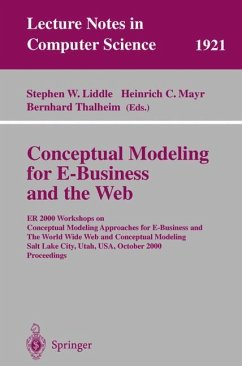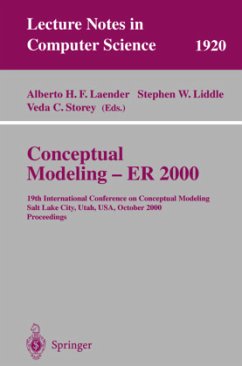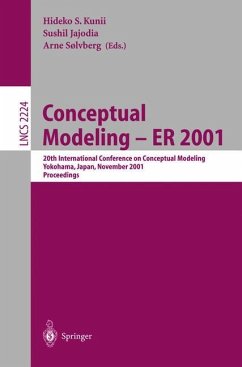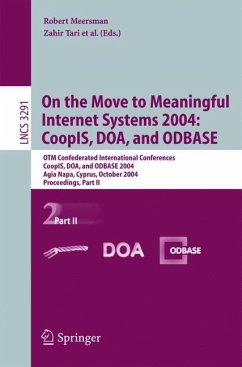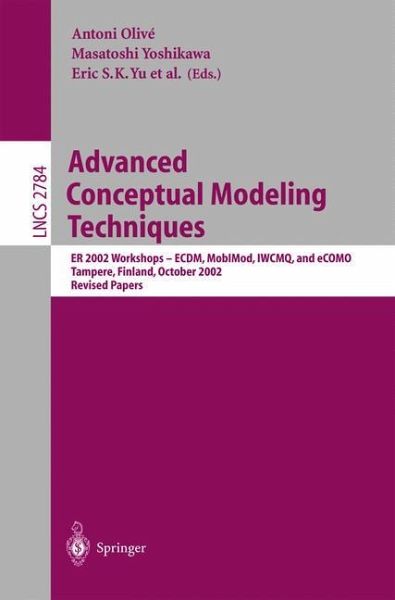
Advanced Conceptual Modeling Techniques
ER 2002 Workshops - ECDM, MobIMod, IWCMQ, and eCOMO, Tampere, Finland, October 7-11, 2002, Proceedings
Herausgegeben: Olivé, Antoni; Yoshikawa, Masatoshi; Yu, Eric S.K.

PAYBACK Punkte
19 °P sammeln!
The objective of the workshops held in conjunction with ER 2002, the 21st International Conference on Conceptual Modeling, was to give participants the opportunitytopresentanddiscussemerginghottopics,thusaddingnewpersp- tives to conceptual modeling. To meet this objective, we selected the following four workshops: - 2nd InternationalWorkshop on Evolution and Changein Data Management (ECDM 2002) - ER/IFIP8. 1 Workshop on Conceptual Modelling Approaches to Mobile - formation Systems Development (MobIMod 2002) - International Workshop on Conceptual Modeling Quality (IWCMQ 2002) - 3rd Internationa...
The objective of the workshops held in conjunction with ER 2002, the 21st International Conference on Conceptual Modeling, was to give participants the opportunitytopresentanddiscussemerginghottopics,thusaddingnewpersp- tives to conceptual modeling. To meet this objective, we selected the following four workshops: - 2nd InternationalWorkshop on Evolution and Changein Data Management (ECDM 2002) - ER/IFIP8. 1 Workshop on Conceptual Modelling Approaches to Mobile - formation Systems Development (MobIMod 2002) - International Workshop on Conceptual Modeling Quality (IWCMQ 2002) - 3rd International Joint Workshop on Conceptual Modeling Approaches for E-business: a Web Service Perspective (eCOMO 2002) ER 2002 was organized so that there would be no overlap between the c- ference sessions and the workshops. This proceedings contains workshop papers that wererevisedby the authors following discussions during the conference. We are deeply indebted to the members of the organizing committees and program committees of these workshops for their hard work. July 2003 Antoni Oliv´ e, Masatoshi Yoshikawa, and Eric S. K. Yu Workshop Co-chairs ER 2002 ECDM 2002 Change is a fundamental but sometimes neglected aspect of information and database systems. The management of evolution and change and the ability of database, information and knowledge-based systems to deal with change is an essential component in developing and maintaining truly useful systems. Many approachestohandlingevolutionandchangehavebeenproposedinvariousareas of data management, and this forum seeks to bring together researchers and practitioners from both more established areas and from emerging areas to look at this issue.





